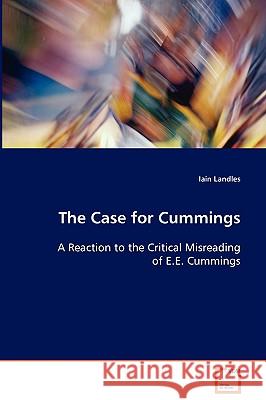The Case for Cummings » książka
The Case for Cummings
ISBN-13: 9783639092509 / Angielski / Miękka / 2008 / 364 str.
'The Case for Cummings' shows how E.E. Cummings has become fixed in criticism due to a misreading of his work by critics. Many critics in the 1920s were hostile to Cummings, forcing Cummings supporters to either defend or apologise for him. Thus, in the 1920s pro-Cummingsian critics defined and fixed the battleground' - collectively collating Cummings themes - love, spring, satire, individualism, and transcendence yet these areas became the very source of attack from anti-Cummingsian critics. This investigation, utilizing the literary theories of Derrida, Bakhtin, Foucault, Bloom, and Cixous, among others, aims to show how both sides have misread Cummings work and in doing so sees a new Cummings emerge, a Cummings who appears less fixed in criticism, who is more complex and richer in scope than first thought, and whose work demands major re-evaluation."
The Case for Cummings shows how E.E. Cummings has become fixed in criticism due to a misreading of his work by critics. Many critics in the 1920s were hostile to Cummings, forcing Cummings’ supporters to either defend or apologise for him. Thus, in the 1920s pro-Cummingsian critics defined and fixed the ‘battleground - collectively collating Cummings’ ‘themes’ - love, spring, satire, individualism, and transcendence – yet these areas became the very source of attack from anti-Cummingsian critics. This investigation, utilizing the literary theories of Derrida, Bakhtin, Foucault, Bloom, and Cixous, among others, aims to show how both sides have misread Cummings’ work and in doing so sees a ‘new’ Cummings emerge, a Cummings who appears less fixed in criticism, who is more complex and richer in scope than first thought, and whose work demands major re-evaluation.











